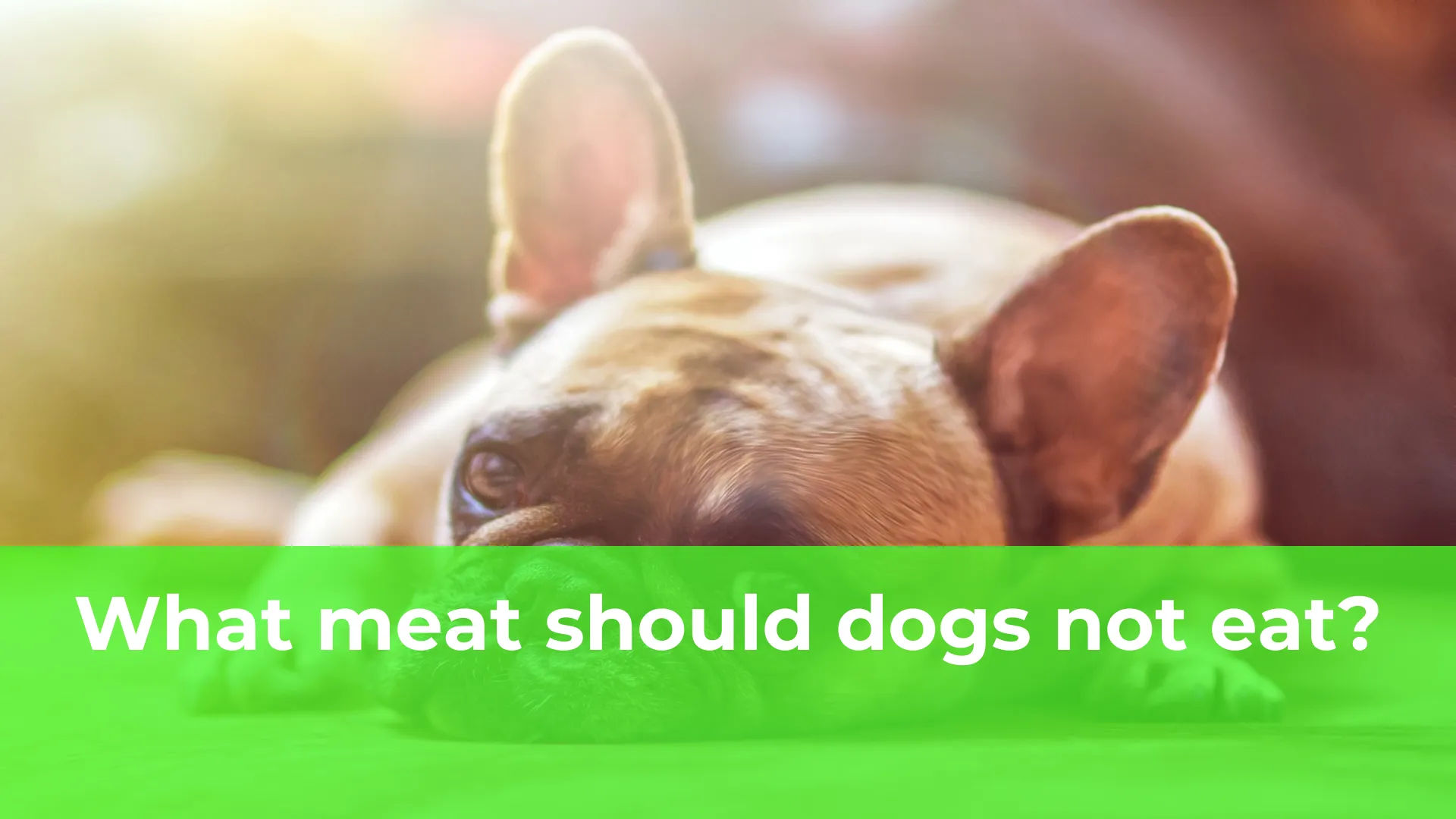What meat should dogs not eat?
Dogs should not eat certain types of meat that can be harmful to their health. One example is raw or undercooked pork, which can contain a parasite called Trichinella that causes trichinosis. Another meat to avoid is raw fish, especially salmon and trout, as they can contain a parasite called Neorickettsia helminthoeca that causes salmon poisoning disease. Additionally, dogs should not consume cured meats, such as bacon or ham, as they often contain high levels of sodium and preservatives that can be detrimental to their well-being. It is crucial for dog owners to be aware of these potential dangers and to prioritize their pet’s health by avoiding these meats altogether.
1. The Hidden Dangers: What Meat Should Dogs Avoid?
Dogs are known for their love of meat, but not all types of meat are safe for their consumption. While certain meats are a delicious treat for our furry friends, others can pose hidden dangers to their health. It’s important for dog owners to be aware of the meats that should be avoided to ensure the well-being of their beloved pets.
One meat that should be strictly off-limits for dogs is raw or undercooked pork. Consuming raw pork can expose dogs to a parasite called Trichinella, which can cause severe intestinal issues and even death. Additionally, pork can be high in fat, leading to digestive problems and pancreatitis in dogs. It’s always best to thoroughly cook pork before offering it to your four-legged companion.
Another meat that dog owners should be cautious about is processed deli meat. While it may be tempting to share a sandwich with your pup, processed meats are often loaded with salt, preservatives, and other additives that can be harmful to dogs. These ingredients can lead to dehydration, kidney problems, and even an increased risk of cancer in dogs. Opt for lean, unprocessed meats instead, and avoid giving your dog deli meats altogether.
2. A Comprehensive Guide: Unsafe Meats for Canines
When it comes to feeding our beloved canine companions, it is crucial to be aware of the potential dangers lurking in certain types of meats. While dogs are generally known for their robust digestive systems, there are some meats that can be harmful or even toxic to them. In this comprehensive guide, we will explore the unsafe meats that should be avoided when it comes to feeding your furry friend.
One of the top meats to avoid feeding your dog is raw or undercooked pork. Pork products, such as bacon or sausages, can contain a parasite known as Trichinella spiralis, which can cause a condition called trichinellosis in dogs. This illness can lead to symptoms like muscle pain, vomiting, diarrhea, and even potentially life-threatening complications. To ensure the safety of your pet, always make sure that any pork products are thoroughly cooked before giving them to your furry friend.
Another meat that should be kept away from your canine companion is raw fish, particularly salmon and trout. These types of fish can contain a parasite called Neorickettsia helminthoeca, which causes a condition known as salmon poisoning disease. This illness can lead to symptoms like fever, vomiting, diarrhea, dehydration, and even death if left untreated. Therefore, it is crucial to cook any fish before feeding it to your dog to eliminate the risk of this serious condition.
3. Dangerous Culprits: Meats that Pose a Risk to Dogs’ Health
When it comes to keeping our furry friends healthy and happy, it’s important to pay attention to what they eat. While dogs are known for their love of meat, there are certain types that can pose a risk to their health. In this article, we explore the dangerous culprits – meats that dog owners should be cautious about feeding their beloved pets.
One of the biggest culprits is raw or undercooked meat. While some pet owners may think it’s a great way to give dogs a more natural diet, it can actually be highly dangerous. Raw or undercooked meat can contain harmful bacteria such as Salmonella or E. coli, which can lead to serious illnesses in dogs. It’s crucial to ensure that any meat given to dogs is cooked thoroughly to kill off any potential bacteria and keep our furry friends safe and healthy.
4. Protecting Your Four-Legged Friend: Foods to Keep Away from Your Dog
As a responsible pet owner, it is crucial to be aware of the foods that can be harmful to your four-legged friend. While some human foods may seem harmless, they can actually be toxic to dogs and cause serious health problems. To keep your furry companion safe, it is important to know which foods to keep away from your dog.
Grapes and raisins may be a healthy snack for humans, but they can be incredibly dangerous for dogs. These innocent-looking fruits can cause kidney failure in dogs and should never be fed to them. Similarly, chocolate, especially dark or baking chocolate, contains theobromine, a stimulant that is toxic to dogs. Ingesting even a small amount of chocolate can lead to symptoms such as vomiting, diarrhea, increased heart rate, and in severe cases, seizures or even death. It is essential to keep all forms of chocolate out of your dog’s reach.
5. No Bones About It: Meats to Steer Clear of When Feeding Your Dog
When it comes to feeding your furry friend, it’s important to make sure you’re giving them the right foods to keep them healthy and happy. While dogs are often seen as carnivores, not all meats are suitable for their consumption. In fact, there are certain types of meat that should be completely avoided when it comes to feeding your dog. So, if you have a habit of giving them table scraps or sharing your meaty meals with them, it’s time to learn which meats to steer clear of.
First and foremost, bones are a big no-no when it comes to feeding your dog. While you may think that giving them a bone to chew on is a natural instinct, it can actually be dangerous. Bones, especially cooked ones, can splinter and cause serious injuries to your dog’s mouth and digestive system. Additionally, bones can easily get stuck in their throat or intestines, leading to choking or blockages that may require surgery to remove. It’s best to avoid giving your dog any type of bone, no matter how small or seemingly harmless.




